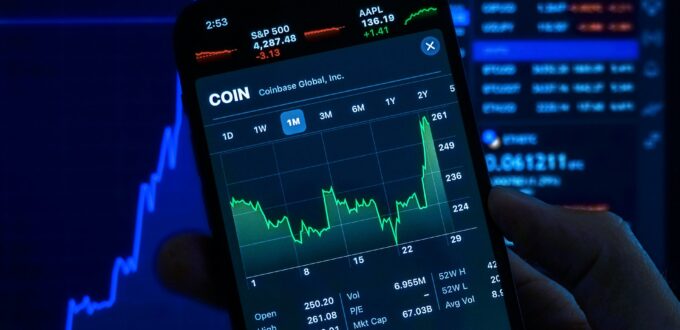In late January, Indonesian celebrity couple Anang and Ashanty made headlines when they launched ASIX, their own NFT token. Prior to the launch, they promoted its presale on their 460k-subscriber YouTube channel, on a video with the bombastic title “Presale Token ASIX Tonight, Be Prepared to be a Billionaire!” and explained how the token was sold out in less than a minute during the private sale.
A few days later, Anang posted on his social media how other celebrities have bought more than 100 million IDR and up to 1 billion IDR worth of tokens.
But it didn’t take long for Anang, the singer, producer, and also House of Representatives’ member, to receive bad news. A week after the NFT token launch. Indonesia’s Commodity Futures Trading Regulatory Agency (Bappebti) dropped a tweet saying ASIX is banned from trading activities, since it has no legal license.
A few hours later, the NFT token’s value dropped to half and their investors started to protest. In their ASIX Token ID Telegram group, people asked why their money was suddenly reduced from 10 million IDR to 5 million IDR, as if they had little to no idea about the risks.
“Hello Mr. Anang, I bought it at 25 million IDR but now it is priced 12 million IDR. Please give me back my money, since we are approaching the fasting month soon,” wrote one Telegram group member.
Despite the turmoil, the celeb-token trend continues. Afterwards, Wirda Mansur (daughter of famous Indonesian cleric Yusuf Mansur) launched I-COIN. This stirred things up even more, because Yusuf used his position as a well-known religious figure to promote Wirda’s latest business venture. It didn’t take long for other names such as dangdut singer Lesli Kejora and former dangdut singer Angel Lelga to also create their own tokens.
Indonesians are familiar with famous names using their stardom to sell products. A similar trend happened several years ago, when local celebrities (with no prior experience as bakers) started selling cakes and desserts. They dubbed their cakes ‘local souvenirs’ as they set up outlets in various cities in Indonesia, with names such as Medan MarPar, Semarang Wife Cake, and Surabaya Snow Cake. During the height of their fame, some shops such as Syahrini’s Bogor Princess Cake became trending topics on social media for creating lines of curious buyers outside their shops. It didn’t take long for the culinary trend to cease, though; most of the celeb-backed dessert shops are now closed for business.
These fame-backed business ventures seemed highly profitable for the celebrities for a short period of time, and there is no doubt that the trend will continue with different products being sold to a devoted audience.
But the celebrity NFT token in Indonesia trend stirred up a different kind of controversy, especially because of the lack of digital literacy among their target markets. Anang and Ashanty, for instance, are especially famous among older women in Indonesia, who need more information on digital safety topics, as highlighted on the digital literacy index.
Investment practitioner Desmond Wira explained, via Kompas.com, that people should not be easily persuaded by big celebrity names when it comes to NFT investments.
“If we buy these celebs’ coins, and then we lose money, will these celebs replace our money? They won’t, right? That’s why we need to think this over, don’t buy these celebrities coins just because we are their fans,” Desmond said.
Indonesian Financial Content Provider Big Alpha also voiced their concerns:
“Crypto assets will not produce cash flow (unlike dividends in stock markets, coupons in bonds, or rents on the property market). The only way to make money is by selling it to other parties at a higher price. Just a kind reminder,” they tweeted.
The increasing popularity of NFTs and cryptocurrency in Indonesia has also highlighted the importance of digital literacy. Indonesia’s latest digital literacy index showed a slight increase, from 3.49 to 3.46. As the Communication and Information Ministry reported, digital skills and culture are improving but digital ethics and safety are worsening. The lowest score was found in digital safety aspect. Further analysis in the index showed that digital literacy still needs improvement for the following groups: women, low-income individuals, low-education individuals, and senior citizens.
This situation also shows the importance of tighter regulations. In Indonesia, the regulation and supervision of crypto assets is carried out by the Commodity Futures Trading Regulatory Agency, or Bappebti. The agency also issues a whitelist of tokens that can be traded in Indonesia and reviews all new coins entering the local marketplace. However, digital assets can be openly promoted by trading platforms, celebrities, and even – as shown in ASIX’s case – members of the House of Representatives.
Tighter regulations can found in other countries, such as Singapore. Earlier this year, the Monetary Authority of Singapore (MAS) issued guidelines banning digital payment token service providers from promoting and advertising in public areas and mass media. They are only allowed to advertise on their own corporate website, mobile apps, or official social media accounts.
Considering the low digital safety ratings in Indonesia and the increasing number of local celebrities dropping their own NFT tokens, it is crucial that steps are taken quickly. Digital literacy needs to be improved and tighter government regulations are needed – before devoted fans lose more money because they know more about their idols than the risks of buying unlicensed NFT tokens.
Image credit: Jeremy Bezanger

No Comments Yet